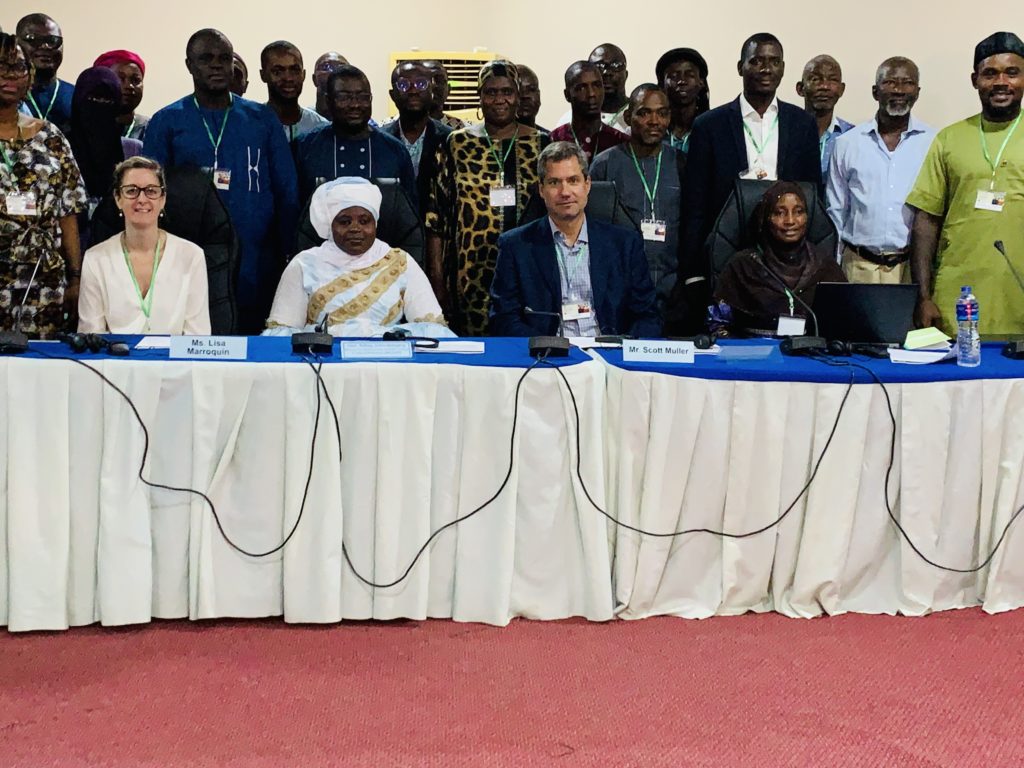
By Ramatoulie Jawo
The Ministry of Environment, Climate Change, and Natural Resources (MECNAR) on Friday kicked off a two-day strategy forum with its partners at a local hotel in Bakau.
The forum is part of the Monitoring, Reporting, and Verification (MRV) for Climate Action Program, which is supported by Environmental and Climate Change Canada.
The two-day forum will bring together Official National Focal Points, Pilot Lead Coordinators, and Monitoring, Reporting, and Verification (MRV) for Climate Action Community of Practice Coordinators from Ghana, the Gambia, Liberia, and Togo.
The participatory technical working sessions will focus on discussing and developing the transformative pilot process and methods to ensure effectiveness and efficiency in achieving national climate change goals.
Hon. Rohey John Manjang, Minister of Environment, Climate Change and Natural Resources, opened the ceremony by speaking about the challenges facing developing countries like the Gambia. She said that the accelerated global climate risks, combined with other international and national stressors, have created a difficult environment for development.
Hon. Manjang went on to say that the Gambia is one of the most vulnerable countries to the health and environmental impacts of climate change. She specifically mentioned that youth and women are disproportionately affected by these impacts.
“The effect of Climate Change is clearly demonstrated with increased average temperatures, and erratic rainfall. This has over the years continued to affect the wellbeing of the Gambians and the economy with increased flooding causing damage to our roads and other valuable infrastructure, decreased agricultural production reduced food security, and drought spells already threatening the health and wellbeing of our people. These cumulative factors therefore continue to multiply the stresses associated with high levels of property and fluctuating economy,” she said.
Hon. Manjang, said that the government has designed and implemented development projects based on its strategic documents, such as the National Climate Change Policy, the Strategic Programme on Climate Resilience, and the Nationally Determined Contributions. She added that research shows that all countries, not just least developed countries, need a monitoring, reporting, and verification (MRV) system across all sectors and levels of government. This would help them to improve decision-making, optimize policies, and guide investment and expenditures on infrastructure and services.
Hon. Manjang encouraged all participants to work towards the realization of transformative climate action for the four member countries.
Jainaba Fatty, speaking on behalf of the Permanent Secretary of the Ministry of Environment, Climate Change, and Natural Resources, expressed her strong belief that MRV for climate action will make a significant difference in their national and regional efforts to mitigate the effects of climate change.
“As for the Gambia, we have conceived three pilot concepts which are maiden and the country is very eager to unfold them for greatness in our development aspirations,” she said.
Ms. Lisa Marroquín, the Co-director of MRV for Climate Change Action, said the transformative pilot meeting is part of their program.
“This is a multi-million-dollar program supported by Environment and Climate Change Canada and is active through March 2026 (3 years). It supports partner countries’ National Development priorities and capacities to plan finance and achieve GHG emission reductions and the implementation of low carbon solutions to local development challenges,” she said.

